10 Best Clothing Supplier for Low MOQ in Europe: Top Manufacturers
Introduction
Launching a clothing brand shouldn't require massive inventory investments. European manufacturers now offer flexible low MOQ options perfect for startups and small businesses. This guide reveals the top 10 suppliers who combine quality craftsmanship with accessible minimum orders—helping you bring your designs to market without the financial risk of bulk production.
European Low MOQ Manufacturers at a Glance
| Manufacturer | Location | MOQ Range | Specialty | Lead Time |
|---|---|---|---|---|
| Italian Artisan | Italy | 50-100 pieces | Premium Fashion | 6-8 weeks |
| Zeria Textile | Portugal | 30-50 pieces | Sustainable Wear | 4-6 weeks |
| Manufy | Netherlands | 25-100 pieces | Multi-Category Platform | 5-7 weeks |
| MPY Textile | Turkey | 100-200 pieces | Premium Garments | 7-9 weeks |
| Fush | Portugal | 50-150 pieces | Cut & Sew | 5-7 weeks |
Why Choose European Clothing Manufacturers?
European manufacturers offer distinct advantages for brands prioritizing quality and ethics:
- 🎯 Proven Quality: Decades of craftsmanship ensure premium finishing and attention to detail
- 🌱 Sustainable Focus: Strict EU environmental regulations guarantee eco-friendly practices
- ⚡ Efficient Logistics: Central location enables faster shipping across Europe and beyond
- 💬 Clear Communication: Language barriers are minimal with English-speaking teams
- 📊 Flexible Scaling: Start small and increase production as your brand grows
Key Considerations When Choosing a Clothing Manufacturer
Selecting the right partner requires evaluating these critical factors:
✅ Low MOQ Manufacturer Checklist
- 📞 Communication: Responsive within 24 hours?
- 💰 Cost Transparency: Clear pricing with no hidden fees?
- 🏭 Factory Access: Willing to share production facility details?
- ⭐ References: Can provide client testimonials?
- 📄 Contract Terms: Reasonable payment and delivery terms?
Production Capabilities
Ensure your manufacturer can handle your specific needs:
- Fabric Selection: Access to sustainable materials and premium textiles
- Technical Expertise: Experience with your garment type (knits, wovens, technical wear)
- Quality Systems: Multiple quality checkpoints throughout production
- Scalability: Ability to grow with your brand from small batches to larger runs
Creating a Successful Clothing Line
Building your brand requires strategic planning and the right manufacturing partner.
Design Development
Start with clear technical packages including detailed sketches, measurements, and fabric specifications. Many European manufacturers offer design support to refine your concepts into production-ready garments.
Market Testing
Use low MOQ production to validate your designs with real customers. Start with 50-100 piece orders to gauge market response before committing to larger quantities.
Quality Assurance
Implement rigorous quality checks at every stage:
- 📐 Pre-production samples approval
- ✂️ In-process quality monitoring
- 🔍 Final inspection before shipping
Top 10 Clothing Manufacturers in Europe
Here are the leading European manufacturers offering low MOQ options for quality-conscious brands:
1) Italian Artisan
Location: Milan, Italy
MOQ: 50-100 pieces per style
Specialty: High-end fashion and premium casual wear
Lead Time: 6-8 weeks
Italian Artisan combines traditional craftsmanship with modern production techniques, specializing in luxury fabrics and meticulous attention to detail.
2) Zeria Textile
Location: Porto, Portugal
MOQ: 30-50 pieces per style
Specialty: Sustainable and organic clothing
Lead Time: 4-6 weeks
Zeria Textile focuses on eco-friendly production with GOTS-certified organic materials and transparent supply chains.
3) Manufy
Location: Amsterdam, Netherlands
MOQ: 25-100 pieces (varies by factory)
Specialty: Multi-category platform connecting brands with manufacturers
Lead Time: 5-7 weeks
Digital platform that simplifies sourcing by matching brands with pre-vetted European manufacturers.
4) Create Fashion Brand
Location: London, UK & Berlin, Germany
MOQ: 50-200 pieces
Specialty: Full-service production for emerging brands
Lead Time: 6-8 weeks
Comprehensive services including pattern making, tech pack development, and production management.
5) Fush
Location: Lisbon, Portugal
MOQ: 50-150 pieces
Specialty: Cut and sew manufacturing
Lead Time: 5-7 weeks
Expert in custom clothing production with strong focus on fit and construction quality.
6) MPY Textile – Clothing Manufacturer
Location: Istanbul, Turkey
MOQ: 100-200 pieces
Specialty: Premium garments and tailored clothing
Lead Time: 7-9 weeks
Well-established manufacturer known for excellent craftsmanship and quality control systems.
7) Gruppo Florence
Location: Florence, Italy
MOQ: 100-300 pieces
Specialty: Luxury fashion and heritage craftsmanship
Lead Time: 8-10 weeks
Premium manufacturer serving luxury brands with artisanal production techniques.
8) DSA Manufacturing
Location: Porto, Portugal
MOQ: 50-150 pieces
Specialty: Small batch production and custom clothing
Lead Time: 5-7 weeks
Flexible manufacturer ideal for brands testing new designs and limited collections.
9) Prood
Location: Barcelona, Spain
MOQ: 75-200 pieces
Specialty: Sustainable streetwear and casual fashion
Lead Time: 6-8 weeks
Focuses on eco-friendly production methods and contemporary urban styles.
10) Hoplites
Location: Athens, Greece
MOQ: 100-250 pieces
Specialty: Versatile production from casual to high-end
Lead Time: 7-9 weeks
Adaptable manufacturer serving diverse market segments with consistent quality.
More about Clothing Manufacturers in Portugal
Low MOQ Cost Expectations in Europe
Understanding typical pricing helps budget effectively:
- 👕 Basic T-shirts: €8-15 per piece (50-100 unit MOQ)
- 👖 Denim Jeans: €25-45 per piece (100-200 unit MOQ)
- 🧥 Outerwear: €40-80 per piece (50-150 unit MOQ)
- 👗 Dresses: €20-35 per piece (75-200 unit MOQ)
Prices vary based on fabric complexity, design details, and manufacturer location.
What to Expect When Working with European Clothing Manufacturers
European manufacturers typically follow a structured process:
Initial Consultation
Most manufacturers begin with a detailed discussion of your needs, timeline, and budget. Expect to provide technical sketches or mood boards.
Sample Development
Prototype samples are created for approval, usually taking 2-3 weeks with 1-2 revision rounds included.
Production Timeline
Most low MOQ orders complete within 4-10 weeks depending on complexity and factory capacity.
FAQs
Set 1: Core Sourcing Questions
- Q: What is the lowest MOQ in Europe for fully custom clothing?
- A: While many demand 150-300 units, specialized manufacturers in Portugal often offer MOQs as low as 50-70 pieces per style/color for premium jersey garments to support startups.
- Q: Why is Portugal better for small batch production than other European hubs?
- A: Portugal excels due to its high concentration of vertically integrated factories and its textile industrial heritage, allowing for faster turnaround and better communication for small batch sizes.
- Q: How much more expensive is EU sourcing compared to Asia?
- A: Unit cost is generally higher (by 15-30%), but the total landed cost is often comparable due to lower shipping costs, faster lead times, and negligible import duties within the EU.
- Q: How long does sampling typically take with a European manufacturer?
- A: Sampling usually takes 3-6 weeks from tech pack finalization to approved pre-production (PP) sample, depending on the complexity and the fabric sourcing timeline.
Set 2: Performance & Durability
- Q: What is the best fabric for retaining color after multiple washes?
- A: High-quality Polyester blends and **combed ring-spun cotton** dyed with reactive dyes are best for colorfastness.
- Q: Which T-shirt material is least likely to shrink?
- A: **Polyester** and **blended fabrics** (cotton/poly) are highly resistant to shrinking. Pre-shrunk (or garment-dyed) cotton also minimizes shrinkage.
- Q: How do I prevent polyester T-shirts from developing odor?
- A: Look for fabrics treated with an **antimicrobial finish** during production, or choose natural fibers like bamboo which are naturally antimicrobial.
- Q: What fabric type is best for layering?
- A: Lightweight **French Terry** or medium-weight **tri-blends** offer breathability and softness without the bulk, making them ideal for layering.
Set 3: Sourcing & Cost
- Q: Does the fabric GSM (weight) affect the cost of a custom T-shirt?
- A: **Yes, directly.** Higher GSM (grams per square meter) means more raw material is used per garment, increasing the raw material cost and the final unit price.
- Q: Is Pima cotton worth the extra price compared to standard cotton?
- A: **Yes, for premium brands.** Pima cotton has extra-long staple fibers, making it exceptionally soft, durable, and resistant to pilling, justifying the higher cost for luxury items.
- Q: How does a vertical supply chain affect the cost and quality of T-shirts?
- A: A vertical supply chain (factory handles knitting, dyeing, and sewing) leads to **faster production** and **better quality control** because fewer third parties are involved, often making the end product more consistent.
- Q: Are there low-cost sustainable fabric options besides organic cotton?
- A: **Yes.** Recycled cotton, recycled polyester (rPET), and some forms of Modal/Tencel offer sustainable credentials at lower price points than fully certified organic cotton.
Set 4: Decoration & Customization
- Q: What is the best T-shirt fabric for screen printing?
- A: Fabrics with a **high cotton content (80%+)** are best for screen printing, as the inks adhere strongly to natural fibers, providing a vibrant and durable finish.
- Q: Can I use high-resolution DTG printing on T-shirts with high polyester content?
- A: **No, DTG (Direct-to-Garment) printing is not suitable for high polyester.** It requires a high cotton content (ideally 100%) for the ink to bond and cure properly.
- Q: Does embroidery work well on lightweight fabrics like tri-blends?
- A: **It can, but with caution.** Embroidery adds weight and tension, which can cause puckering or distortion on very lightweight knits. A backing material is usually required.
- Q: What fabrics should be avoided for sublimation printing?
- A: Sublimation printing should be **avoided on 100% cotton** and other natural fibers, as the dye is designed to gasify and bond *only* with polyester fibers.
Company & Solutions
Our company connects brands with the best european clothing manufacturers, offering solutions tailored to your production needs, including low MOQ options and sustainable practices.
Help & Support
We provide comprehensive support throughout the clothing manufacturing process, from design ideas and tech packs to final production, ensuring your brand achieves its vision with quality and ethical standards.
Start your made in Italy collection today
Leverage the expertise of italian and other european manufacturers to launch your clothing line with premium garments, sustainable materials, and ethical production practices. Contact us to find the right manufacturer and start producing your fashion collections with confidence.
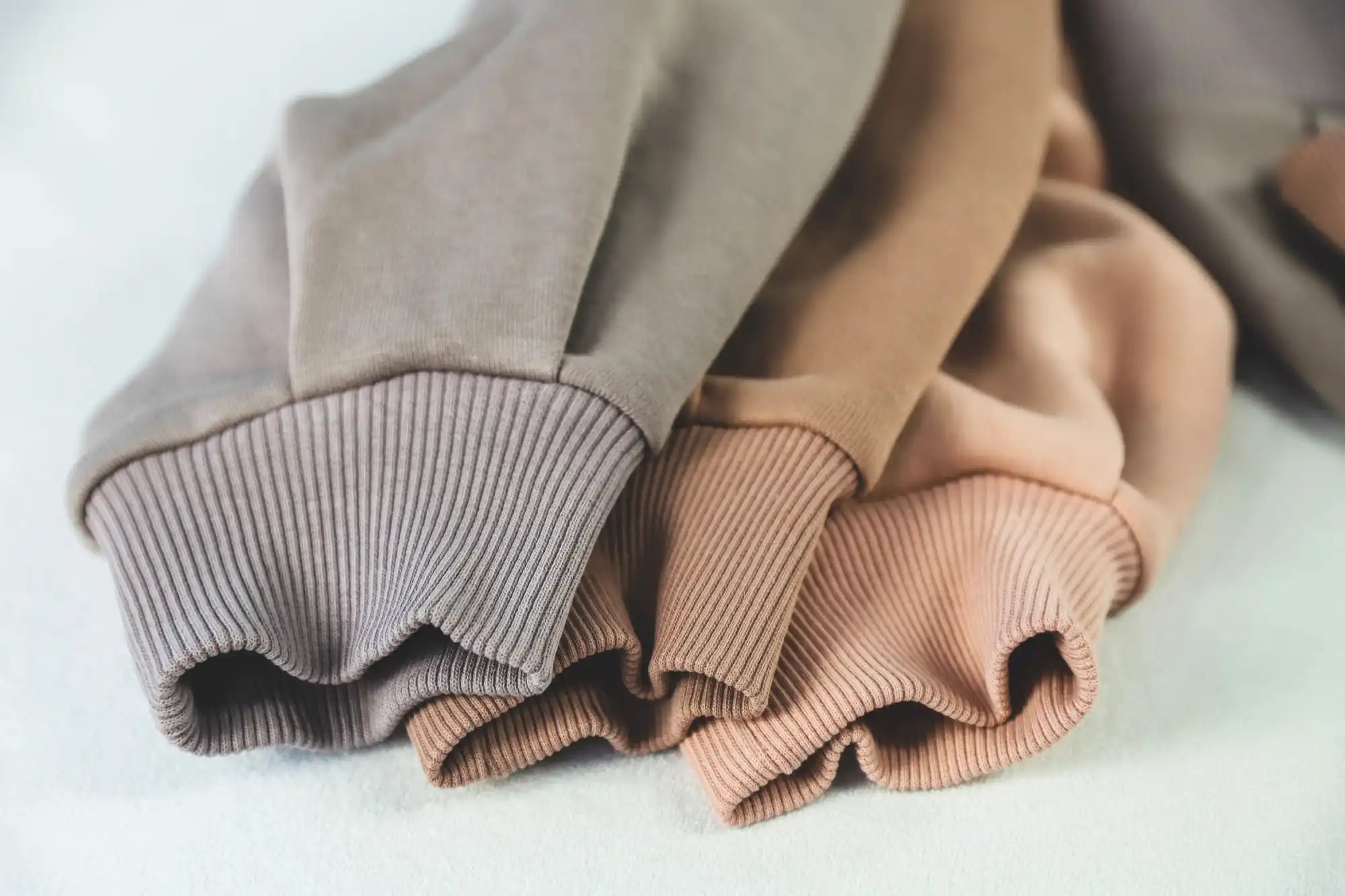
Materials & Fabrics for Clothing Production
Explore cotton, French terry, jersey, fleece, and sustainable blends used in premium apparel manufacturing.
Explore Premium Apparel Fabrics Guide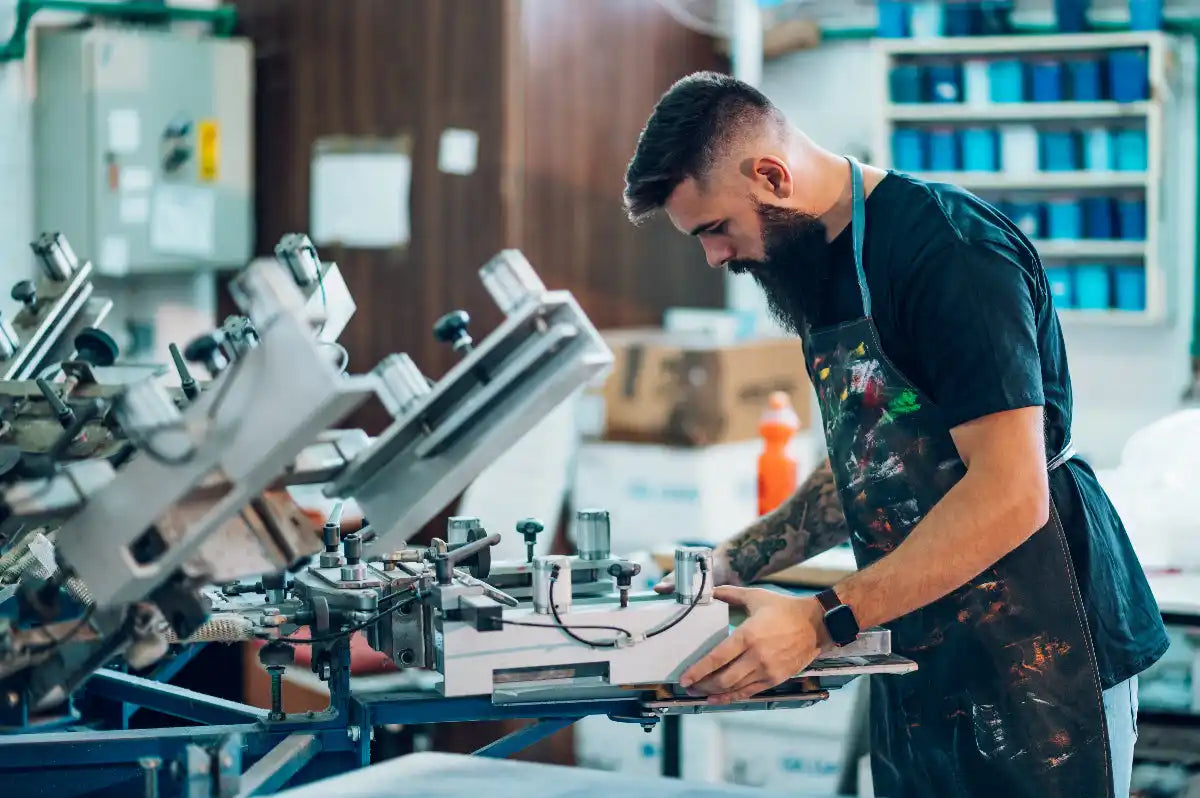
Printing Techniques for Apparel Production
Screen printing, embroidery, puff prints, and digital methods for custom clothing manufacturing.
Explore Custom Apparel Printing Techniques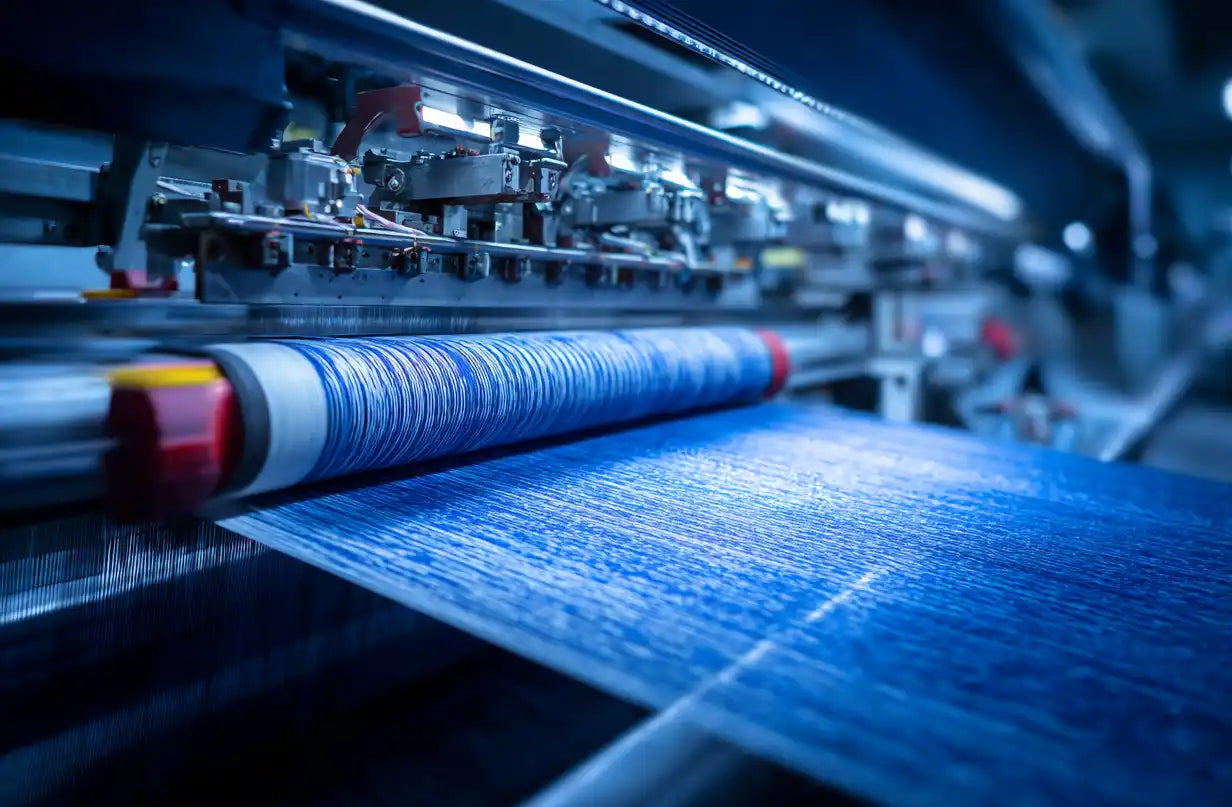
Dyeing Techniques in Clothing Manufacturing
Garment dye, pigment, acid wash, and stone wash finishes that create unique apparel designs.
Compare Apparel Finishing Techniques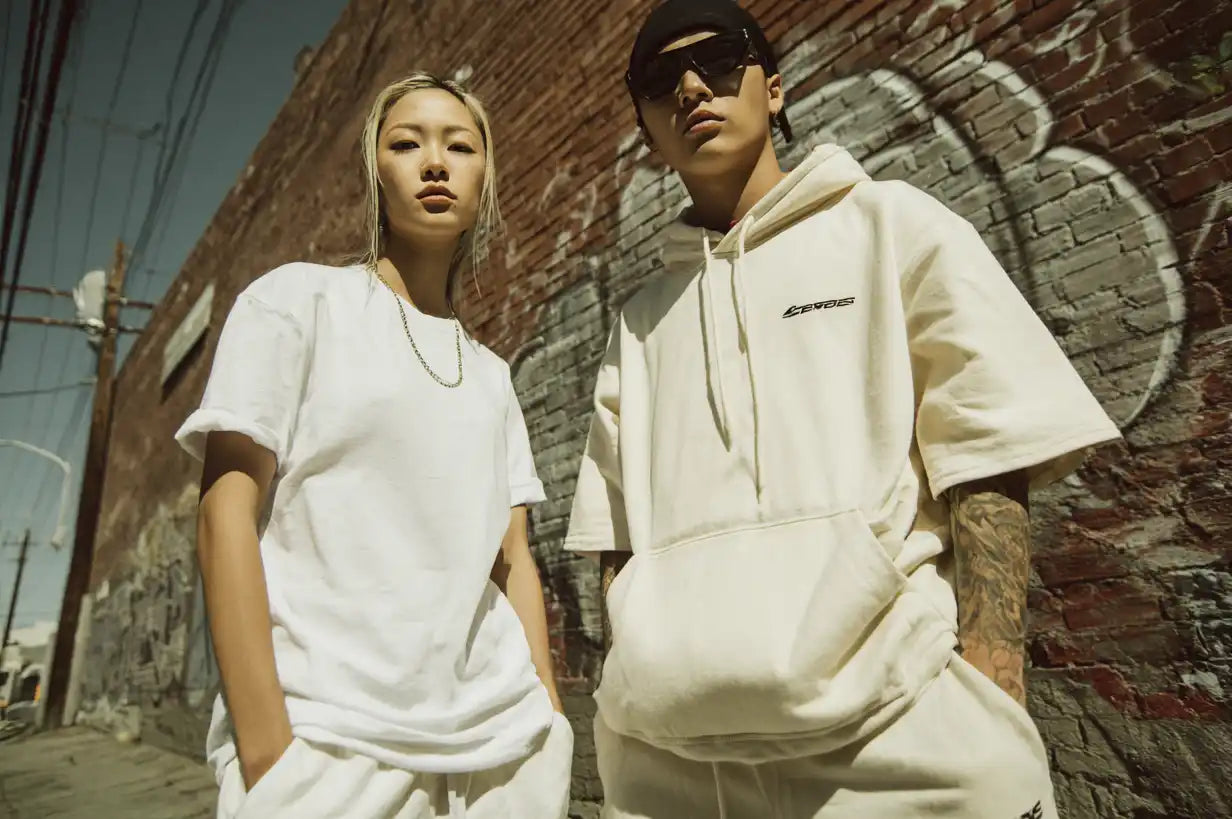
Popular Clothing Items for Custom Apparel
Hoodies, joggers, t-shirts, leggings, and biker shorts — essentials for every apparel collection.
Explore Popular Custom Clothing Items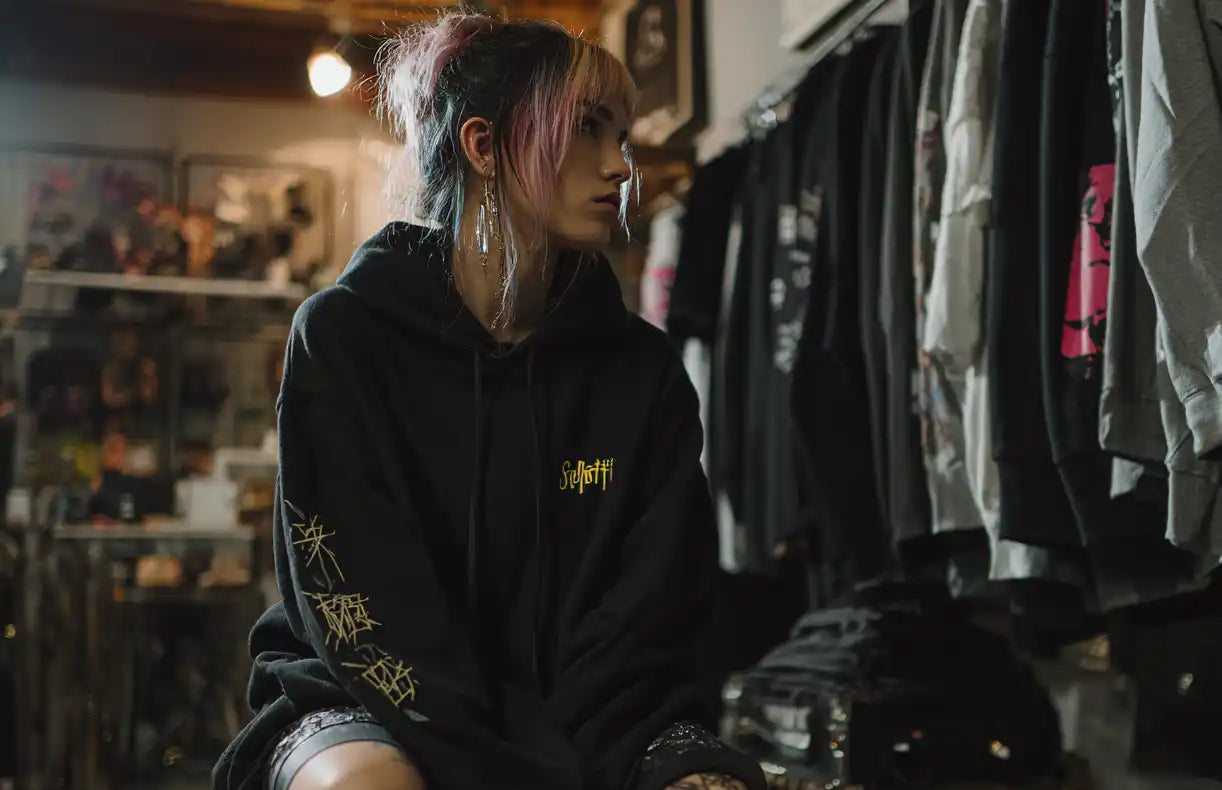
Trends & Designs in Modern Apparel
Oversized fits, streetwear influences, and activewear styles driving custom clothing production.
Explore Trends & Designs for Apparel Development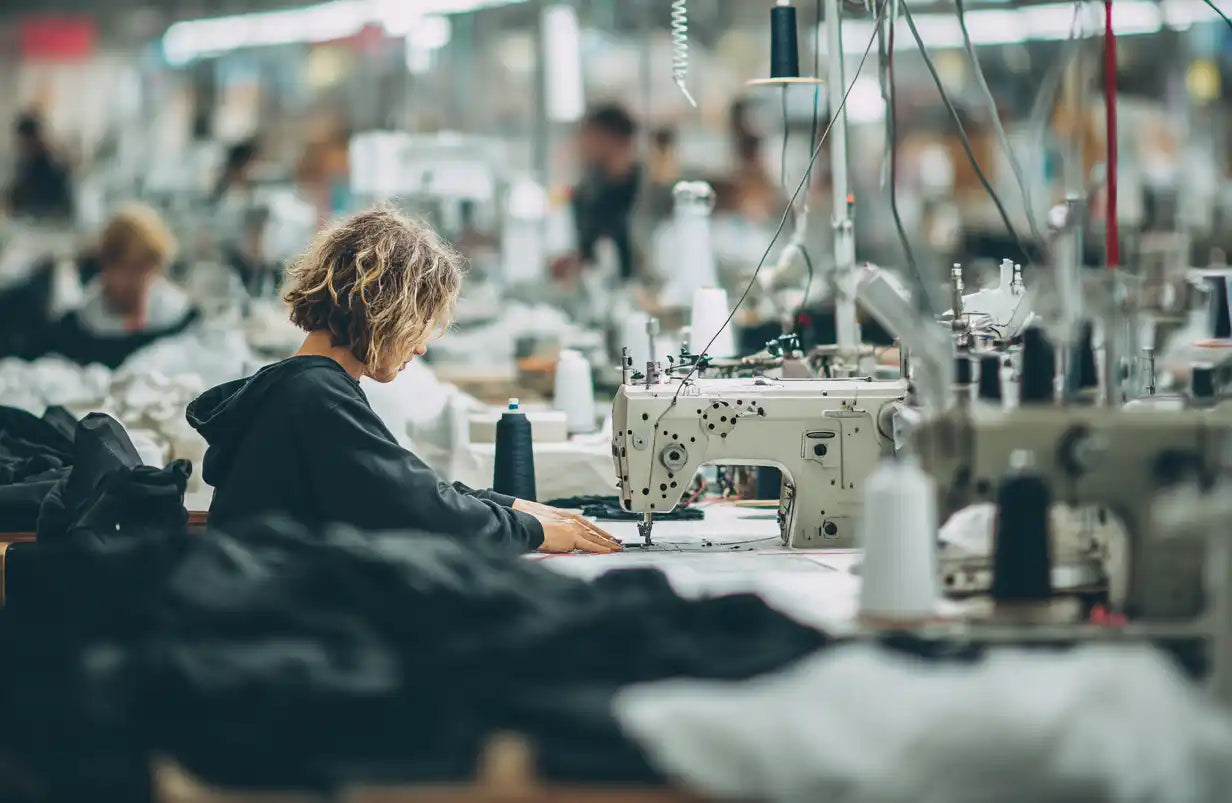
Sustainable & Ethical Clothing Production
OEKO-TEX® certified fabrics, organic cotton, and ethical apparel manufacturing in Portugal.
Understand Sustainable & Ethical Clothing Production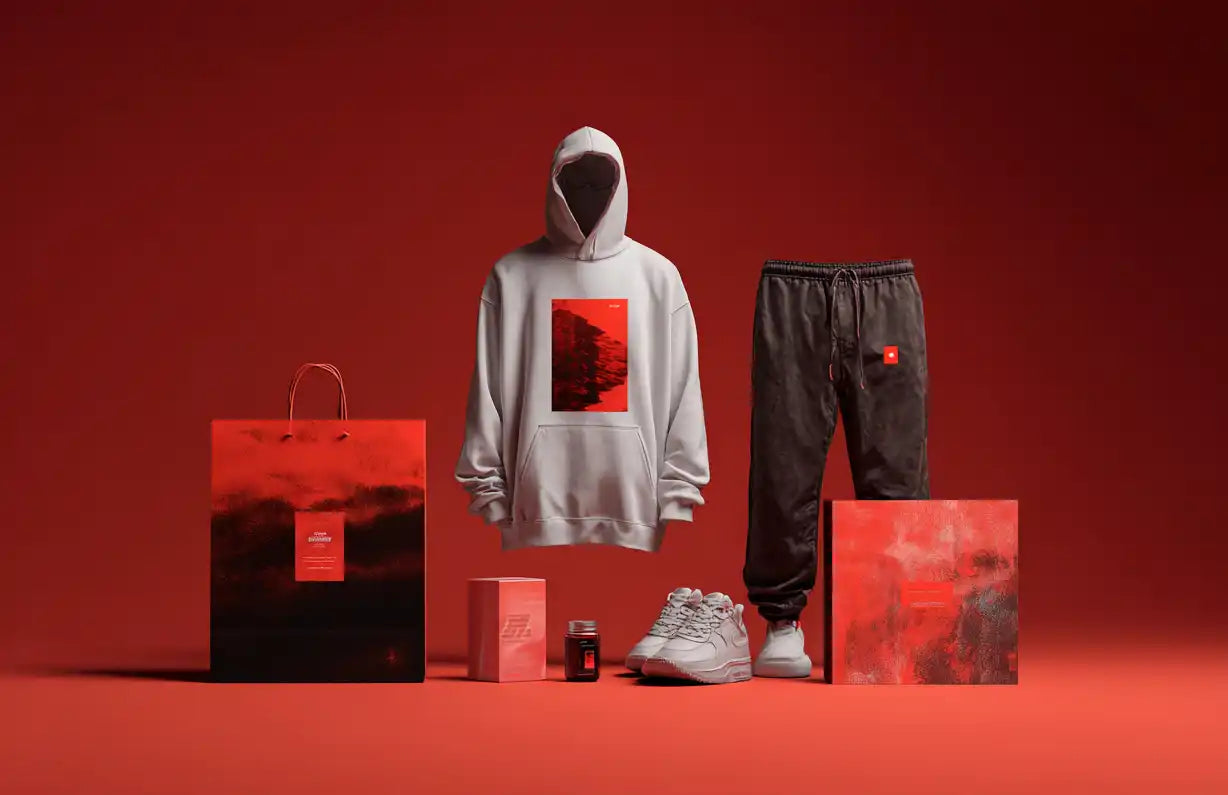
Essentials for Custom Clothing Production
Custom labels, packaging, and trims that elevate your apparel brand in production.
Explore Essentials for Custom Clothing Production
Resources for Custom Clothing Production
Startup guides, logistics support, and scaling strategies for apparel brands and wholesale clients.
Explore Resources for Custom Clothing Production
Clothing Manufacturing Glossary
Explore a complete glossary of clothing and garment manufacturing terms
The Complete Clothing Manufacturing Glossary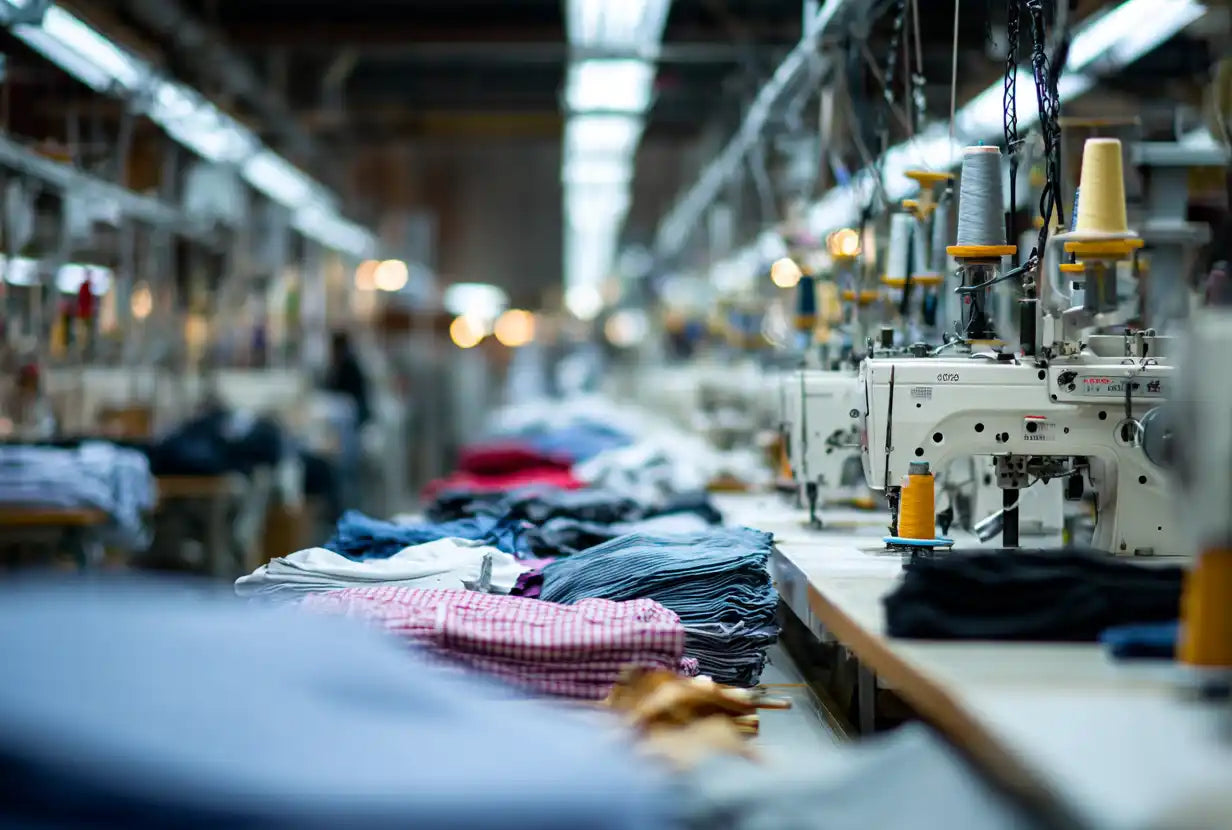
The Best Clothing Manufacturers
Explore global clothing manufacturers by country
Explore The Best Clothing Manufacturers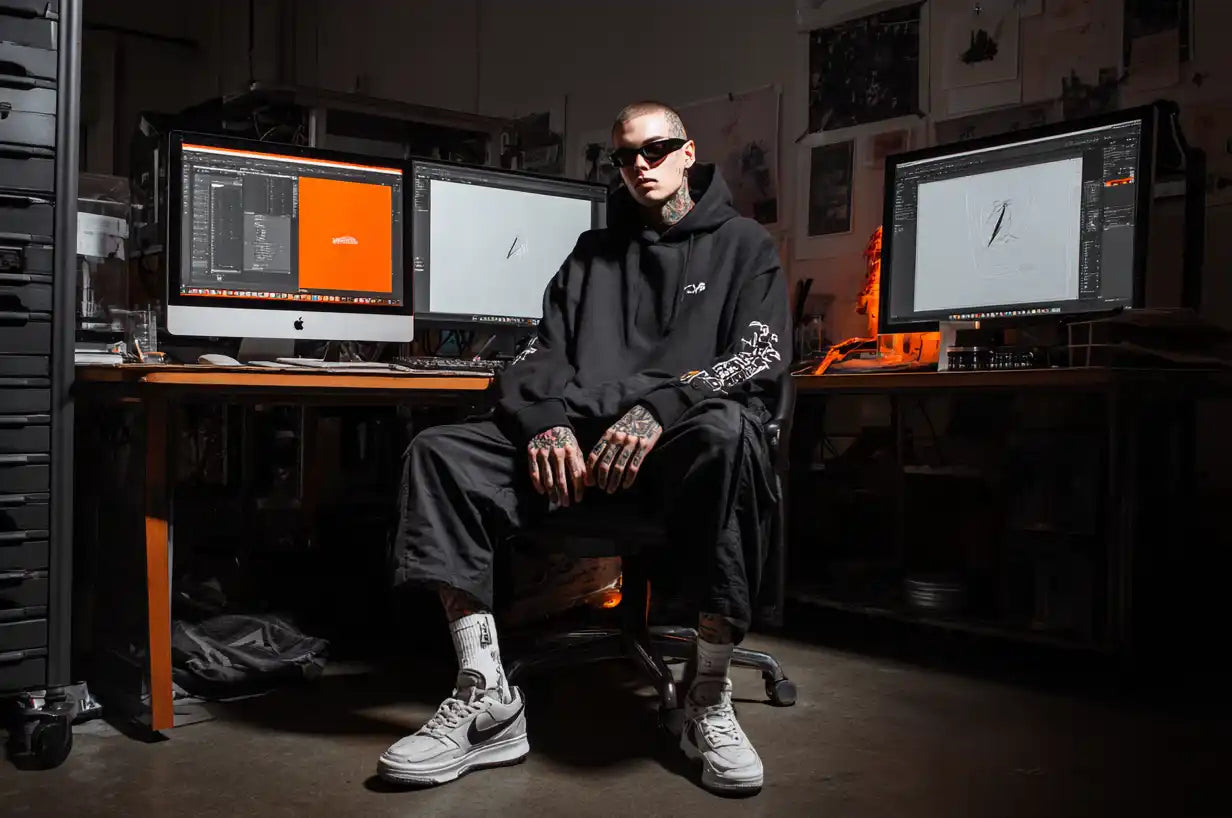
The Latest Clothing Industry Updates in 2025
Discover the latest news about important topics in the clothing industry in 2025,
Stay On Top Of Clothing Industry Updates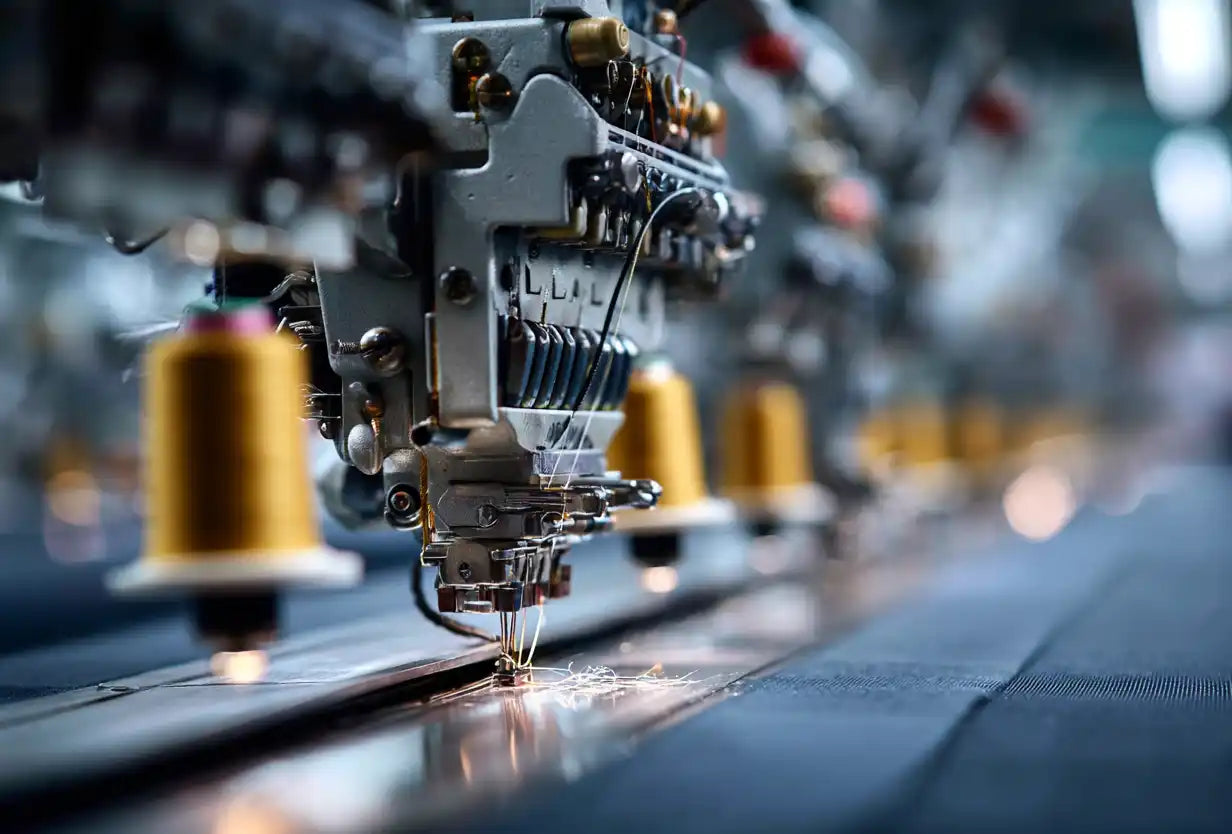
Worldwide Best Manufacturers of Clothes in 2026
Top clothing manufacturers worldwide organized by product type
Find The Worldwide Best Manufacturers of Clothes